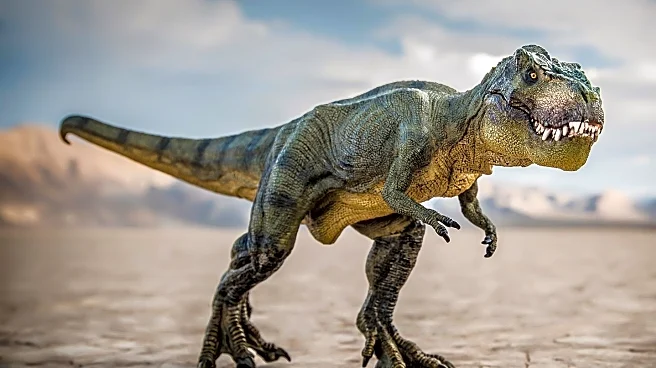What's Happening?
A recent report highlights the decline in populations of scavenging animals such as vultures and hyenas, which play a crucial role in maintaining ecological balance by feeding on rotting carcasses. This decline is raising concerns among scientists about potential negative impacts on human health. The report, presented by NPR science reporter Jonathan Lambert, emphasizes that the reduction in scavenger populations could lead to an increase in human diseases. Scavengers help prevent the spread of diseases by consuming dead animals that could otherwise become breeding grounds for pathogens. Conservation efforts are being considered as a means to mitigate these health risks.
Why It's Important?
The decline of scavenger populations poses a significant threat to public health by potentially increasing the spread of diseases. Scavengers act as natural waste managers, and their absence could lead to a rise in disease-carrying organisms. This situation underscores the interconnectedness of ecosystems and human health, highlighting the need for conservation strategies to protect these vital species. The potential health risks could have widespread implications, affecting public health policies and prompting increased investment in conservation efforts to maintain ecological balance.
What's Next?
Conservationists and policymakers may need to collaborate to develop strategies aimed at preserving scavenger populations. This could involve habitat protection, anti-poaching measures, and public awareness campaigns to highlight the importance of these animals. Further research may be conducted to better understand the specific health risks associated with declining scavenger populations and to develop targeted interventions. The scientific community is likely to continue monitoring these trends to inform future conservation and public health initiatives.
Beyond the Headlines
The decline in scavenger populations also raises ethical and cultural questions about human interactions with wildlife. In some cultures, scavengers are revered and play a role in traditional practices. The loss of these animals could impact cultural heritage and biodiversity. Additionally, the situation highlights the broader issue of human impact on ecosystems and the need for sustainable practices to ensure the health of both the environment and human populations.









